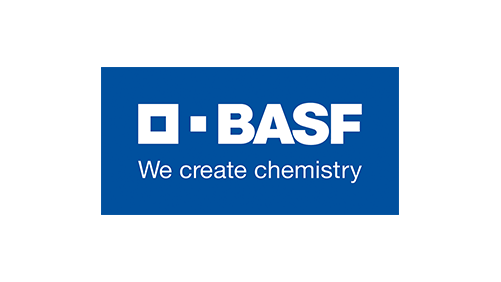Smart Scientists – Josh Speros
He is a polymer scientist who turned in his lab coat for business attire: As a science scout, Josh Speros is on the hunt for the next big innovation for BASF on the West Coast. Within BASF’s California Research Alliance, he drives collaborative research projects for advanced materials and systems by connecting BASF experts and university scientists. Josh holds a bachelor’s degree in Chemistry from the University of Saint Thomas in St. Paul, Minnesota and a PhD in Chemistry from the University of Minnesota.
What are polymers and what is your fascination with them?
A polymer is a large molecule composed of repeating subunits called monomers. Most polymers are organic, meaning they consist primarily of carbon, oxygen, nitrogen, and hydrogen. Essentially, you connect small organic molecules together in a chain, like beads on a string, and by making this string longer, you get interesting properties. That's what gives polymers their unique value in both science and industry. And that’s what fascinates me – converting small molecules into something you can hold in your hands.
You are a science scout – what does that mean?
The California Research Alliance (CARA), is a multi-university initiative that focuses on collaborative research between universities and BASF scientists. I serve as the CARA manager responsible for BASF’s Advanced Materials & Systems division looking for collaboration opportunities between universities and our scientists.
I am the eyes and ears for BASF on the West Coast and my task is purely to pay attention to what's happening outside our walls. California is home to incredibly strong universities and an outstanding entrepreneurial culture. By building a broad network, I identify BASF’s needs and marry those to academic capabilities.
Coordinating, managing, mentoring – I make sure that the lines of communication between BASF and external project teams are as open as possible. Sometimes that means serving as a translator, sometimes I’m the administrator helping to submit a patent or to transfer the technology into BASF.
What do you love about your job?
Yesterday, I met professors in San Diego, today I’m heading up to meet representatives at the University of California, Los Angeles and the California Institute of Technology. It’s a pleasure to interact with the brightest minds in industry and academia. I get introduced to scientists and startups whose enthusiasm is very infectious. It’s what I love about my job.
CARA gives BASF scientists an opportunity to do something outside of BASF. For the scientists, it’s an opportunity to flex their scientific muscles while working on something novel or fundamentally deep. It is a wellspring of inspiration for the scientists who want to continue their development and contribute to a culture of innovation at BASF. I’m proud to support these efforts as they bring up unique research projects and breakthrough technologies.
What kind of projects are you supporting for CARA?
One of the coolest first projects we had at CARA was focused on adhesives. Our goal was to improve the adhesion of polymers to wet surfaces. Try to stick a piece of tape to a wet surface, it won't stick – but it’s a known need in the printing and packaging industry. We ran a project at the University of California, Berkeley, inspired by adhesion of the marine mussel. Mussels excrete a protein glue that sticks to rocks in wet surfaces, obviously very well. The team translated those proteins into a synthetic polymer with drastically improved wet adhesion.
There’s another project I’m really excited about: Together with the University of California, San Diego, we are leveraging a combination of chemistry and biology to make monomers sourced from algae. For me, this is an exciting project because I’m a polymer scientist and because it’s an innovative approach to sustainable polymer development.
Speaking of sustainability – how can polymers support BASF’s sustainability approaches?
The first generation of polymers developed over the last hundred years have been instrumental in improving our quality of life. But now there is a pressing need for change. I’m excited to see a paradigm shift in polymer chemistry focused on sustainability. We still need polymers, but we must find clever ways to develop them from biological sources, improve their degradability, and fit them into more holistic systems like a circular economy. These changes are challenging, but BASF has both the capability and the courage to pursue them. It's an exciting time to be a polymer chemist because there is certainly no shortage of challenges.
Do you miss the lab?
I think if I went back into the lab, I probably wouldn’t be very productive until I got back my muscle memory. However, I sometimes miss it. There is always a tremendous sense of satisfaction and accomplishment that comes from doing something with your hands – when you can see what you've made.
However, what I love about being a science scout is starting so many new exciting things and being part of the scientific process. Perhaps I am living through my collaborators. I’m eager to see one of my projects become a commercialized technology that helps shape a better future.
